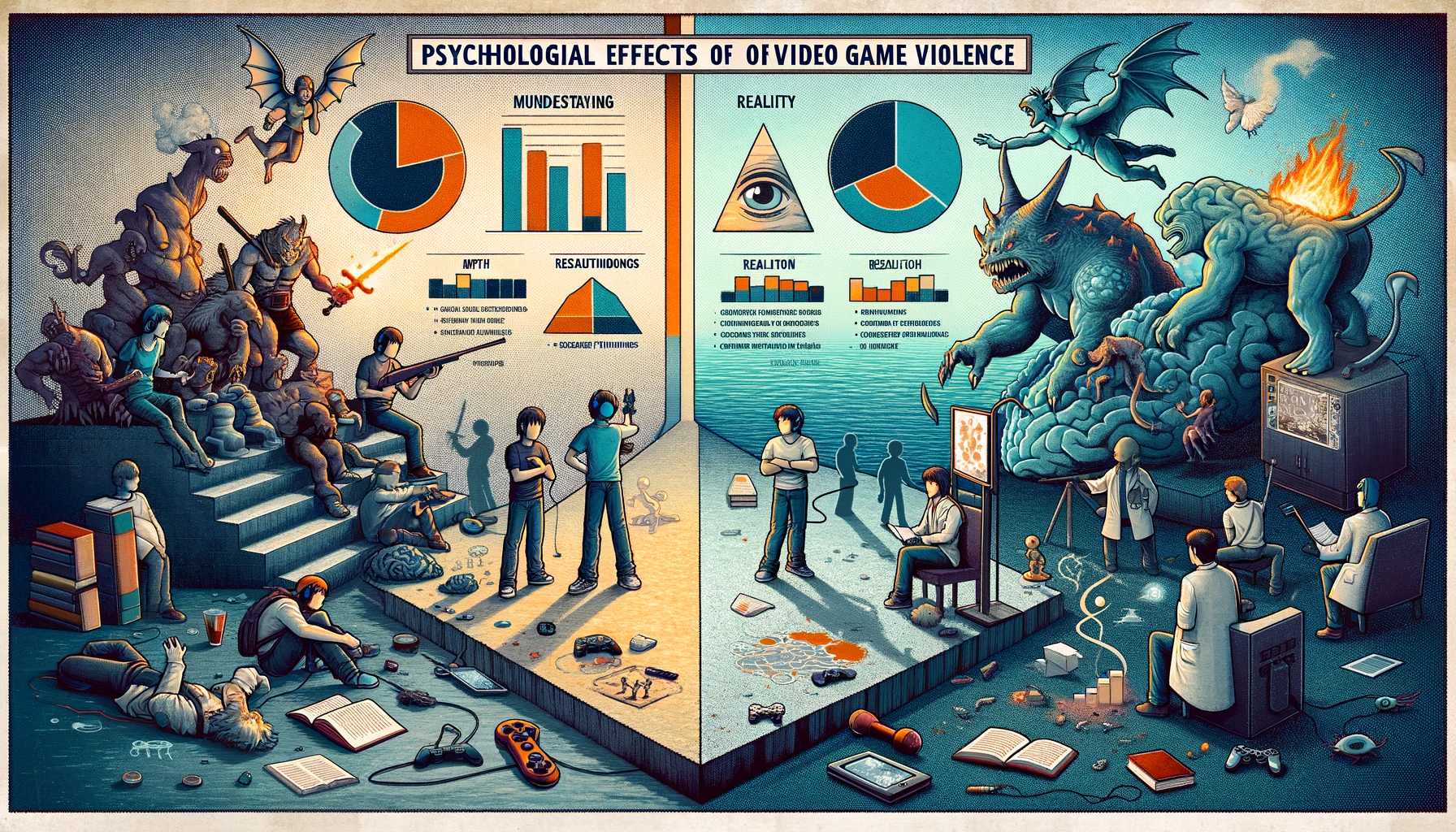Introduction:
Video games have become a ubiquitous form of entertainment, captivating millions of people worldwide. However, amidst their popularity, concerns have arisen regarding the potential psychological effects of violent content within these games. Debates on whether exposure to violence in video games leads to real-life aggression or desensitization have been ongoing for decades. In this blog post, we delve into the research findings to separate myths from facts, exploring the nuanced psychological effects of violence in video games.
Understanding Aggression and Violence:
Before delving into the effects of violent video games, it's crucial to differentiate between aggression and violence. Aggression refers to any behavior intended to harm another individual, whereas violence involves the actual physical or psychological harm inflicted upon another person. While video games may elicit aggression in players, the leap to actual violent behavior is a complex and multifaceted issue influenced by various factors, including individual differences, environment, and upbringing.
Debunking the Myth of Direct Causation:
One of the most pervasive myths surrounding violent video games is the notion of direct causation – that exposure to virtual violence inevitably leads to real-life aggression. However, extensive research has failed to establish a causal link between playing violent video games and engaging in violent behavior. Studies attempting to find such a connection have yielded mixed results, with many failing to replicate findings or showing minimal effects.
Criticisms of Early Research:
Early studies purporting a direct link between violent video games and aggression often faced criticism for methodological flaws and oversimplification. These studies typically relied on short-term experimental designs, where participants played a violent game for a brief period before assessing their aggression levels. Such approaches fail to capture the complexities of long-term exposure and real-world behavior, leading to questionable conclusions.
Longitudinal Studies and Nuanced Findings:
In contrast to early experimental studies, longitudinal research provides a more comprehensive understanding of the relationship between video game violence and aggression over time. A landmark study by Ferguson and colleagues (2019) followed adolescents over several years and found no significant long-term effects of playing violent video games on youth aggression. Similarly, a meta-analysis conducted by Greitemeyer (2014) concluded that the overall effect size of video game violence on aggression is modest at best.
The Role of Individual Differences:
It's essential to recognize that individuals respond differently to violent content in video games based on various factors, including personality traits, cognitive abilities, and socio-cultural background. For instance, while some players may experience temporary increases in arousal or aggression after playing a violent game, the majority can effectively distinguish between fantasy and reality, maintaining a clear delineation between virtual violence and real-world behavior.
Desensitization vs. Catharsis:
Another commonly debated aspect is the potential desensitizing effect of violent video games, wherein repeated exposure to graphic content reduces emotional sensitivity to violence. While desensitization may occur in some individuals, research suggests that it's not a universal phenomenon. Moreover, proponents argue that engaging in virtual violence can serve as a form of catharsis, allowing players to release pent-up aggression in a safe and controlled environment, thus potentially reducing real-world aggression.
Positive Effects of Video Games:
Amidst the focus on the negative effects, it's important to acknowledge the positive aspects of gaming as well. Video games offer opportunities for social interaction, cognitive stimulation, and skill development. Many games promote prosocial behavior, empathy, and problem-solving skills through engaging narratives and cooperative gameplay. Furthermore, for individuals struggling with mental health issues such as depression or anxiety, gaming can provide a therapeutic outlet and a sense of escape from real-world stressors.
Parental Involvement and Regulation:
Given the diverse effects of video games on individuals, especially children and adolescents, parental involvement and regulation play a crucial role in mitigating potential harms. Rather than blanket bans or censorship, parents can engage in open dialogue with their children, set appropriate limits on screen time, and encourage critical thinking about media content. Additionally, industry ratings systems and technological tools can aid parents in making informed decisions about game content suitable for their family members.
Conclusion:
In conclusion, the debate surrounding the psychological effects of violence in video games is complex and multifaceted. While concerns about potential negative impacts persist, the empirical evidence fails to support the notion of a direct causal link between playing violent video games and engaging in real-life aggression. Instead, research suggests that the relationship is nuanced, influenced by individual differences, contextual factors, and the interplay of various variables. By understanding these complexities and promoting responsible gaming practices, we can foster a healthier and more informed approach to video game consumption, ensuring that the benefits outweigh the risks for players of all ages.
